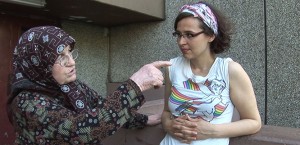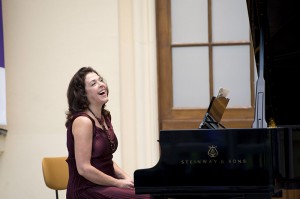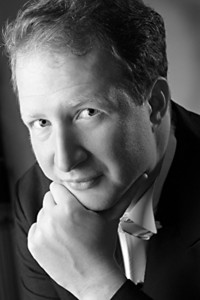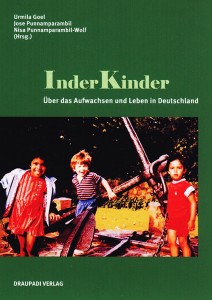
Canan Turan with her grandmother
© Adriana Uribe
In our series of events “New German Stories” we present different perspectives on the immigration country Germany. That immigrants from Turkey, Vietnam, Poland, India and Cameroon and their descendants have stories to tell is nothing new—the novel twist is, that they present them here as German stories. On Tuesday, 8 July, director Canan Turan will be a guest of the Academy of the Jewish Museum. In her film KIYMET, she tells the story of her grandmother, who migrated to Berlin from Turkey in the early 70s. We asked Canan three questions about her project:
How did the idea to make a film about your grandmother Kıymet come about? → continue reading
An Interview with Elena Bashkirova
From 7 to 11 May, we will host a chamber music festival in the museum’s Glass Courtyard. Katharina Schmidt-Narischkin and Sylvia Winkler of our press office spoke in advance with the festival’s director Elena Bashkirova.
Press office JMB: As festival director, what themes have you chosen to emphasize this year?

Elena Bashkirova, festival director and pianist
© Monika Rittershaus
Elena Bashkirova: Our themes have been determined this year by two anniversaries: on the one hand, the start of the First World War 100 years ago and its impact on music; on the other hand, the 150th birthday of Richard Strauss. Both anniversaries augur a varied program for “intonations”: 1914 saw an astonishing richness of musical styles, which our concerts will reflect. And Strauss composed chamber music nearly his entire life, so I have a wide range of pieces and genres to choose from.
Every year at “intonations,” chamber music classics can be heard together with unknown works. What composers should visitors expect to discover in this third season?

David Robert Coleman, composer and conductor © private
Rudi Stephan was an extraordinary discovery for me. I heard Music for Orchestra and Violin a few years ago here in Berlin. I was impressed and deeply touched by it. As I was putting together the programs for “intonations,” I found his gorgeous chamber music and was delighted to have the chance to present it here with my colleagues. Rudi Stephan died in the war when he was 28. Given his talent, he would otherwise have certainly provided us with more outstanding music.
There will also be another world premiere: the fourth concert, on Saturday 10 May, will open with David Coleman’s “Three pieces for clarinet and piano.” Another significant composer this year will be Karol Szymanowski. He has his own tonal language, writing hauntingly beautiful music that unfortunately is played much too seldom. → continue reading
Dealing Creatively with Ethnic Classifications

Book cover
© Draupadi Verlag
Tomorrow at the Academy of the Jewish Museum Berlin, Urmila Goel and Nisa Punnamparambil-Wolf will introduce the book they edited, InderKinder – Über das Aufwachsen und Leben in Deutschland (Indian-Children: on Growing Up and Living in Germany, published by Drapaudi Verlag). It’s the third in a series of events on “New German Stories” where, with the aid of individual biographies, we examine Germany’s historical and current status as an immigration society. On this occasion we’ll focus on the children of immigrants from India, who gained public awareness for the first time during the “Green Card” campaign of 2000.
Prior to the reading and discussion tomorrow, we asked the two editors, Nisa Punnamparambil-Wolf and Urmila Goel, three questions:
What made you choose this title?
We’re referring with this title to the marginalizing “Kinder statt Inder” (children instead of Indians) campaign of the year 2000. The wordplay of InderKinder (Indian-children) is meant ironically: it was important to us to find a creative way to deal with these attributions. With the book, we want to show the varied ways that people who grew up and live in Germany handle the classification of being a child of Indian immigrants.
The book consists of two parts, autobiographical stories and essays. How would you explain your concept?
→ continue reading



